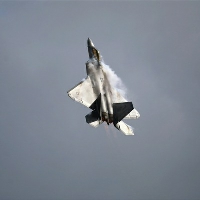First of all, parents should calm down and learn to change their attitude towards their children. During their homework, they should not disturb or care, and let them finish it on their own; Secondly, cultivate children's sense of time, and let them complete on time; Finally, encourage and support the children's progress so that they have a sense of achievement. Let's talk about how to deal with children who refuse to do homework.
What to do if children refuse to do homework
1. Provide favorable options for solving problems
In the face of children's procrastination and unwillingness to do homework, children can be given the opportunity to choose. Giving children the right to choose can give them a sense of control over things. But it should be noted that what parents provide is a choice that is beneficial to solving problems, rather than a choice of punishment or making children like.
The correct way is to provide children with multiple choices, ask them what they want to try, and then let them choose their own solutions, just like doing multiple choice questions in exams. For example, do you want to do your homework now or after dinner. It is important to make clear to children in advance that children should be honest and make choices. Otherwise, the next time his parents promised him, they could not do it.
2. Help children form a positive academic self-concept
As children grow older, their understanding of themselves begins to develop from physical to psychological, and they can define themselves in different ways from different aspects. A child's understanding of academic self-concept may be "my math and Chinese are good, but my English is poor."
Children's unwillingness to do homework is largely due to their lack of interest in learning. Therefore, it is important to stimulate children's interest in learning and help them form a positive academic self-concept. When helping students form a positive academic self-concept, parents should pay attention to their children's comprehensive achievements, their efforts and attention to learning, and their views on learning.
This requires parents not to pay too much attention to their children's performance, and praise their children's efforts for learning when they do well in the exam; If your child does not do well in the exam, you should praise his/her emphasis on learning and his/her efforts, and work with him/her to find a remedy. In short, it is important to seek truth from facts to find the advantages of children and praise them, so that children can maintain their interest in learning.
3. Encourage children in time
When children show progress, we must not forget to encourage them in time. It can even be reversed. Let the children supervise what they need to improve, let the children "turn the other cheek", and have more desire for positive change.
For example, when your child is doing homework, you can't help nagging, and you also like to stare at his mistakes and ask him to correct them immediately. Then you can let your child remind you when you have these performances, and ensure that you can do it, and use action to let the child feel your change. It can also be regarded as mutual supervision and progress together.
In addition to the above methods, parents also need to maintain a rational attitude, have enough patience, and cultivate their good habits.

